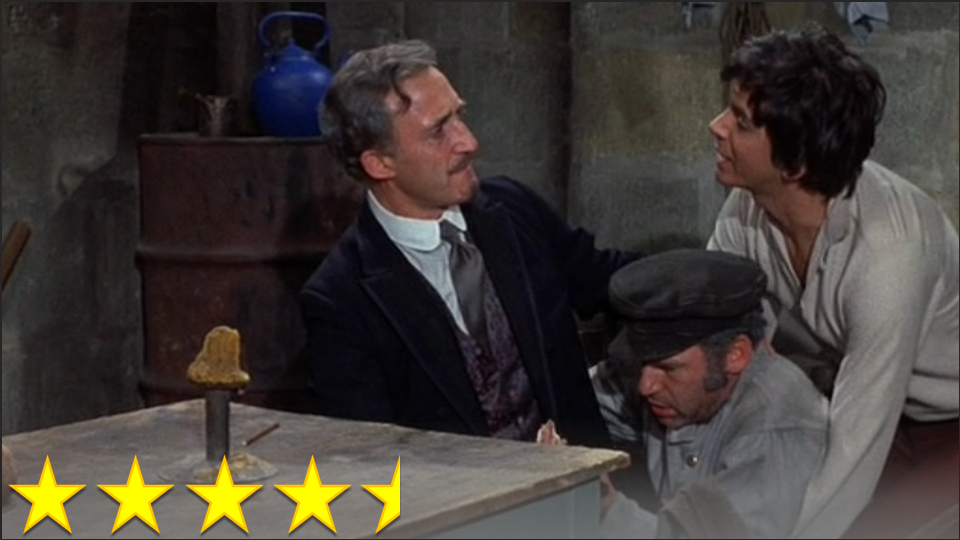There are three things that interest me about this film.
First, I don’t know how to categorize it. Is it a blaxploitation film? A dramedy? Maybe just a comedy? An art film? Fantasy? It certainly seems to be a cult film, and an unconventional comedy of some sort, but comedy’s usually aren’t as enthused with stress and anger as this seems to be. It’s definitely a satire of some sort, but not of a usual sort, instead preferring to be its own unique work of art.
The second thing that fascinates me is that it manages to be the most intense film I’ve ever seen, and yet I’d never heard of it until I was watching it. I’d heard of the song, which I was a little disappointed to learn was not in the film, but not the film. While the director is recognized as a very significant and influential one, this film isn’t regarded as highly significant, in spite of its immense power. I came out of that film more exhausted than I would have been if I’d been watching any other film while doing push-ups. It confronts the audience with racial stereotypes and societal problems in a way that’s jarringly blunt, and it left me wanting to take a nap afterward, but that’s not a bad thing. It never allows the spectator to be comfortable for more than a second. It makes the viewer think, and it has shaped my view of the 1970s, and even today, more than anything else I’ve seen in a long time. The beautiful thing about it is that it shows how intense and powerful a film can be in a meaningful way, as opposed to meaningless displays of power that are usually praised.
What’s especially fascinating about the film is that, although it’s a very engaging film, it actually puts being a film on the back-burner. In a sense, it’s more of a cinematic essay, or maybe a cultural scrapbook. The plot does not care to explain itself in the slightest – it knows it doesn’t make sense and it doesn’t care. It doesn’t quite feel real, but that adds to the unease. It doesn’t resolve itself well, at least not in any conventional sense, and that’s very deliberate. The movie doesn’t exist to satisfy an audience, but to challenge its audience, refusing to focus on anything other than its argument. While it’s by no means a perfect film, and it’s not really my style for the most part, it’s an excellent example of how a message movie can be done in a way that’s more convincing than it is preachy. I still don’t know just what to call it, but whatever it is, it’s something kind of special.
Oh, and it gets bonus points for the Paul Williams cameo – the best part of ’70s cinema.

